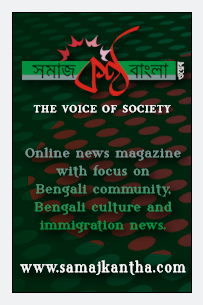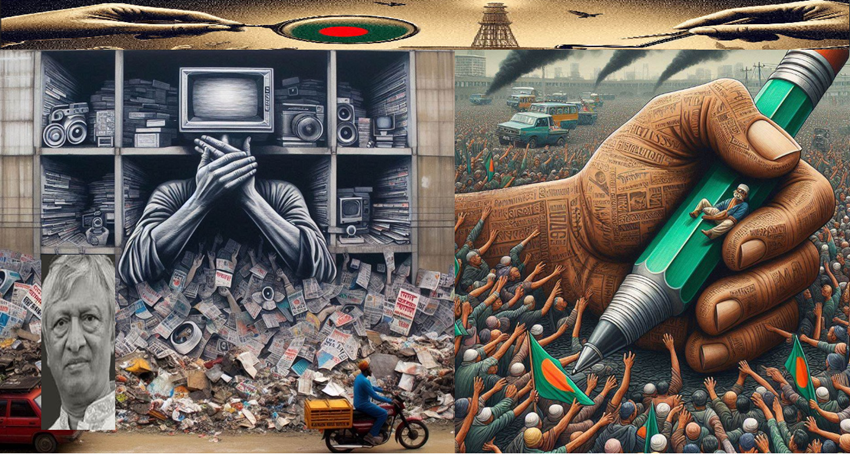The interim government is on the path of silencing and depoliticizing the media - party-free elections are the only goal.
Delwar Zahid
In recent weeks, Bangladesh's interim government has taken alarming steps to stifle independent journalism and remove politics from public discourse. Only a free, fair, and transparent electoral process will restore public confidence as the nation prepares for the upcoming elections. This is essential to prevent the erosion of democratic values and ensure that citizens can freely express their voices in determining the country's future.
BNP's stance towards democratic process and national legacy
The Bangladesh Nationalist Party (BNP) has shown awareness of the precarious situation facing the country's democracy. Although the student-led protests have changed public sentiment, the underlying issues have not been resolved. BNP Secretary General Mirza Fakhrul Islam Alamgir, supported by leaders like Mirza Abbas, insisted that invoking the concept of a "second independence" under a Ziaur Rahman-style figure undermined the true legacy of the nation's liberation war. BNP leaders have rightly warned the interim government of the danger of dishonoring Bangladesh's historic freedom struggle.
Furthermore, Abbas spoke of the need to press for transparent elections. He warned that the people would not tolerate an unelected, extended government without a clear commitment to democratic principles. He called for dismissing politically motivated cases against opposition leaders as a gesture of justice and fairness. This move demonstrates the BNP's commitment to upholding democratic integrity and unity in Bangladesh and sends a critical message about the consequences of their stance on the erosion of the democratic process.
Increasing mob violence and the role of the interim government
On August 5, calls were made to counter the growing wave of mob violence across the country. Born out of demands for free speech and equality, the so-called "mass uprising" has turned into aggressive protests driven by fear and intimidation. From protests over test results to violent demands for change in judicial and political leadership, Bangladesh has witnessed an alarming shift towards Janata rule. This pattern of violence, supported by hidden agendas within the current government, is particularly troubling because it reflects a breakdown in order.
While the violence is widespread even in educational institutions - where incidents of harassment against teachers and students continue - the administration has shown limited response. Instead, student groups operate under the guise of maintaining security, furthering a culture of fear. Such violent disruptions have intensified calls for a responsible government response, possibly including deploying external security forces, to restore order. Without such intervention, the upcoming elections will risk instability and intimidation, undermining public confidence.
Editors' Council: Defending Press Freedom
Bangladesh Editors' Council has expressed deep concern about press freedom. Despite the government's commitment to protect journalistic freedom, newspapers face significant intimidation. Prothom Alo and the Daily Star, prominent newspapers, have faced threats, protests, and calls for increased security, revealing the severity of the current climate.
The Council condemned what it described as "mob trials," where groups try to intimidate and silence media outlets. Such tactics are not only an insult to journalism but also a direct attack on democratic principles. In an urgent appeal, the editorial board called on the government to intervene and ensure that the media can operate freely. They insist that disagreements with the press should be resolved through debate, not threats, violence, or coercion. The Council's position is clear: a commitment to press freedom is essential to upholding democratic values.
The President (Writer) of Bangladesh North American Journalists Network has called for an international investigation into the allegations of physical abuse and remand by showing arrests in various lawsuits, including mass cancellation of accreditation cards of professional journalists and murder cases of journalists without following the conventional legal process.
Upholding the core features of modern governance: At its core, a modern government should be defined by transparency, accountability, and respect for the rule of law. Effective management requires a system prioritizing public service delivery, open communication, and adaptable policies. Governments that embrace these qualities can maintain public confidence, provide stability, and increase resilience to challenges. Bangladesh's interim government must adopt these policies to gain legitimacy, especially in the upcoming elections, where the people demand an administration that represents them.
As Bangladesh navigates these tumultuous times, the interim government must adhere to democratic values, particularly by ensuring an environment where the media can operate freely, without opposition.














